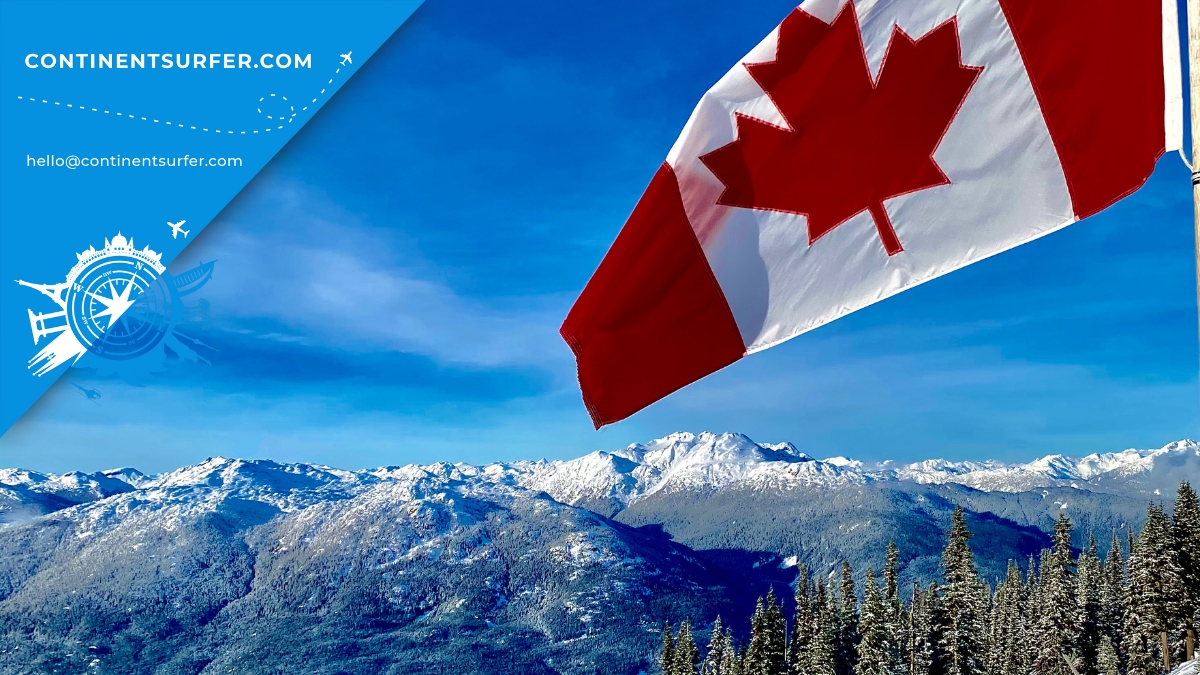Canada and climate change
Over the past few decades, a scientific consensus has gradually emerged on the contribution of human activity to climate change. Namely, that the continued depletion of the Earth’s resources, the emission of pollutants and, in general, the lifestyle of modern humans has in many cases pushed the planet’s climate in a catastrophic direction. This process started to become really serious with the first industrial revolution.
Written by: Attila Peringer
Australia has already been discussed on the same topic. Unfortunately, however, Canada also seems to be one of the countries most severely affected by climate change. Here is some information on the current situation and future prospects of the country.
Canada is a vast, developed country with wonderful natural resources. Many people have images of large and orderly metropolises, endless forests or snowy landscapes. The typical Canadian winter usually still comes with plenty of snow and harsh sub-zero temperatures, but that may soon change. The country is warming at twice the rate of the rest of the world, according to climate scientists. According to the federal government’s 2019 climate report, Canada’s average annual temperature has risen by 1.7 degrees Celsius since measurements began in 1948. But the most dramatic change has been in the Arctic, where it has reached 2.3 degrees Celsius. Scientists pointed out that natural processes have contributed to the warming, in addition to human activity, but that the human influence has been much stronger. One reason for the warming here is that areas previously covered in snow and ice no longer reflect incoming solar radiation but absorb it. This can easily lead to disastrous consequences in a short time.
Canada’s glaciers continue to melt
Seeing glaciers is a spectacular experience, but their beauty is almost negligible compared to their prominent role in the ecosystem. To continue the previous line of thought, when a surface covered in ice starts to melt, its reflectivity changes, and it will absorb more and more radiation. This then leads to further melting and absorption of even more radiation, an irreversible process. Glaciers contain a huge reservoir of fresh water, which is important for many reasons, but even more so in Canada. About 90% of British Columbia’s energy supply comes from hydropower, for which glaciers provide the necessary water. However, warming temperatures mean that they are less and less able to reach their former thickness in winter. This reduces the amount of water that can be harnessed from them, which will eventually cause energy supply problems. Glaciers also feed rivers, but their ability to do so is diminishing due to melting. If some rivers simply dry up, not only will fish species disappear, but irrigation of agricultural land could become a problem. In the longer term, this could even cause serious disruptions to drinking water supplies.

Cities at risk
It is a relatively well-known fact that around 80% of Canada’s population lives in cities. As in Australia, the frequency and severity of extreme weather events in Canada has increased in recent years. As this trend is expected to continue, and even increase in frequency, cities will face a number of extra challenges related to climate change. The high concentration of people, buildings, businesses and infrastructure in these places makes them particularly vulnerable to any sudden natural disasters. For example, in 2013, Calgary’s entire downtown had to be evacuated due to flooding rivers, and in 2017, the province of Quebec had to declare a state of emergency due to incessant rainfall.
But it is not only relatively fast-moving weather events that pose a threat. The trends are just as worrying, take the aforementioned heat waves. In Canada, a dramatic increase in the number of hot days and nights is expected. Within this, the number of so-called tropical nights is also likely to increase, meaning that on these nights the temperature will not fall below 20 degrees Celsius. This may not seem like a lot at first, but in a large city the implications are immense. In an urban environment, high volumes of concrete and tall buildings absorb much more radiation, creating the heat island effect. Higher temperatures also mean higher levels of air pollution. Vehicle exhaust fumes are virtually cooked, creating toxic smog and high concentrations of ozone near the surface. This poses significant health risks, especially for vulnerable groups.

Will 2023 be the year of forest fires?
So far this year, fires have already consumed roughly 46,000 square kilometres of forest in Canada. By any count, that’s the equivalent of about half the size of Hungary, and the situation shows no sign of improving. The western part of the country has been the hardest hit, with major cities in Alberta such as Calgary being enveloped in thick smoke for days on end in recent weeks. The fires have been partially contained, but they are flaring up again and again and spreading eastwards. The Canadian environmental authorities are currently aware of more than 400 active fires, nearly half of which are uncontrolled, meaning that fire brigades are unable to deal with them. In British Columbia, 2,400 residents of Tumbler Ridge had to be evacuated because the fire had come dangerously close to the village. Meanwhile, air quality continues to deteriorate, not only in Canada but also in the United States. In June this year, apocalyptic images from New York hit the news headlines after the thick smoke from the wildfires reached the US metropolis. This prompted the US Environmental Protection Agency to issue an alert, as exposure to smoke has immediate and long-term health effects. Not only vulnerable groups and people with respiratory illnesses, but virtually everyone who was outdoors was at risk. The smoke from the forest fires reached Norway a few days later, and experts expect it to spread to other parts of Europe. However, the concentration of polluting particles will not be high enough to pose a risk to people’s health.

The Canadian economy is already suffering from the effects of climate change
The Canadian Climate Institute released a report on climate change a few months ago. It warns that the impacts of climate change are already severely affecting many levels of the economy. In short, unless action is taken quickly, Canada will be facing losses in the billions of dollars within a few years. By 2025, climate change-induced damages will cost the public budget $25 billion, about half of the total projected GDP growth. In any case, households, especially those in the low-income bracket, will face a reduction in income. If emissions remain high, the reduction could be as high as 19% by the end of the century. More bad news is that climate change will not spare jobs: in a negative scenario, up to 3 million jobs will be lost.
Fortunately, there is some light at the end of the tunnel. The report finds that every dollar spent on adaptation and appropriate action can save an additional $13-15 for the economy as a whole.
Even with climate change, Canada is a very attractive destination and the government seems to have recognised the problem. Hopefully, the right steps will be taken to somehow address it.
Did you know?
Canada’s landmass and climate supports approximately 20% of the Earth’s glacier ice volume, excluding the Antarctic and Greenland ice sheets. Outside the ice sheets of Antarctica and Greenland, Canada has more glacier coverage in the form of mountain glaciers, ice fields and ice caps than any other nation.

Like what we do?
If so, please support us, every litte counts and much appreciated!
You will help us to come up with useful information regularly, so please support us every once and a while or even on a monthly basis! Thank you!
Source(s):
Original article: Kanada és a klímaváltozás Translated by: BOGI – CONTINENT SURFER
Join the Continent Surfer community!
Subscribe to our newsletter and be the first to receive the latest news, useful tips, and exclusive offers!

Like what we do?
If so, please support us, every little counts and much appreciated!
You will help us to come up with useful information regularly, so please support us every once in a while or even on a monthly basis! Thank you!
Comment

